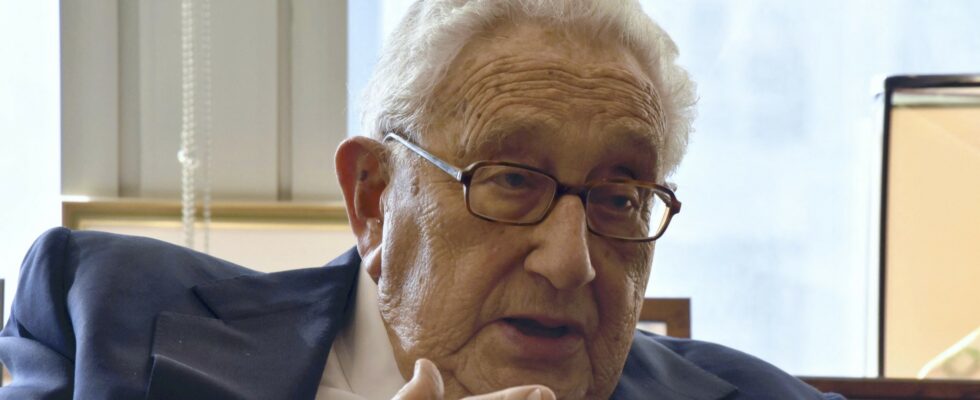Henry Kissinger, a great figure in American diplomacy with controversial facets, who was Secretary of State under Richard Nixon and Gerald Ford, died Wednesday at the age of 100, his organization announced. A key player in world diplomacy during the Cold War, Henry Kissinger “died in his home in Connecticut,” his consulting firm Kissinger Associates said in a statement, without specifying the reason for his death.
Recognized longevity and experience
Initiating rapprochement with Moscow and Beijing in the 1970s, he saw his image tarnished by dark pages in the history of the United States, such as support for the 1973 coup in Chile or the invasion of East Timor in 1975 and, of course, the Vietnam War.
A diplomat as listened to as he was controversial, the man with a gravelly voice and a corpulence that grew over the years liked to distill his thoughts to journalists and at international conferences. Fascinating his audiences with his longevity and vast experience, he was admired by some as a great sage, hated by others who saw him as a war criminal.
The man, who celebrated his 100th birthday in May, had retained the ear of the great people of this world, many decades after leaving his responsibilities in international affairs. For example, he went to Beijing in July to meet with Chinese President Xi Jinping.
Nobel Peace Prize in 1973
A German Jew born in 1923 in Bavaria, Heinz Alfred Kissinger was naturalized American at the age of 20. The son of a schoolteacher, he joined military counter-espionage and the American army before pursuing brilliant studies at Harvard, where he also taught.
Recognizable by his large frame of glasses, he established himself as the face of global diplomacy when Republican Richard Nixon called him to the White House in 1969 as national security advisor, then as secretary of state – – he held both positions from 1973 to 1975, and remained master of diplomacy under Gerald Ford until 1977. It was then that he launched détente with the Soviet Union and the thaw in relations with Mao’s China , during secret trips to organize Nixon’s historic visit to Beijing in 1972.
He also led, always in the greatest secrecy and in parallel with the bombings of Hanoi, negotiations with Le Duc Tho to end the Vietnam War. Signing a ceasefire earned him the Nobel Peace Prize with the North Vietnamese in 1973, one of the most controversial in Nobel history.
